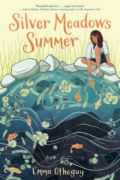
Eleven-year-old Carolina moves with her family from Puerto Rico to upstate New York, where she attends Silver Meadows camp with her cousin, finds an abandoned cottage, and reclaims parts of the life she left in Puerto Rico.

Eleven-year-old Carolina moves with her family from Puerto Rico to upstate New York, where she attends Silver Meadows camp with her cousin, finds an abandoned cottage, and reclaims parts of the life she left in Puerto Rico.
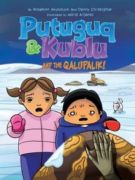
What creatures lurk beneath the sea ice? Putuguq and Kublu – two siblings who can’t seem to get along- are about to find out! On their way to the shoreline, Putuguq and Kublu run into their grandfather, who has a stern warning for the pair: always beware when playing on the shore, because you never know if a qalupalik, a mythical creature that snatches children, is lying in wait under the ice. Kublu is pretty sure their grandfather is just trying to spook them with a scary story from the past….but maybe not?

Steeped in Hispanic folklore since childhood, middle schooler Charlie Hernandez learns the stories are true when, shortly after his parents disappearance, he grows horns and feathers and finds himself at the heart of a battle to save the world.

A Navajo family welcomes a new baby into the family with love and ceremony, eagerly waiting for that first special laugh. Includes brief description of birth customs in different cultures.
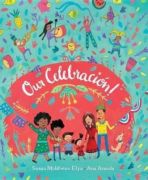
Come join the crowd headed for a summer celebración! Marvel at the people riding motociclos, bicycles, triciclos, and unicycles. Duck out of the way as firefighters spray water everywhere. Clap to the music as people playing clarinetes, saxophones, trompetas, and drums march by. Feast on lemonade, watermelon, tacos, and helado. Take cover when a brief rain shower comes, and then as night falls–big sorpresas. Pop, pop, pop! ¡Bón, bón, bón!
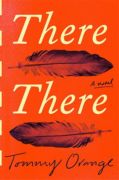
As we learn the reasons that each person is attending the Big Oakland Powwow—some generous, some fearful, some joyful, some violent—momentum builds toward a shocking yet inevitable conclusion that changes everything. Jacquie Red Feather is newly sober and trying to make it back to the family she left behind in shame. Dene Oxendene is pulling his life back together after his uncle’s death and has come to work at the powwow to honor his uncle’s memory. Opal Viola Victoria Bear Shield has come to watch her nephew Orvil, who has taught himself traditional Indian dance through YouTube videos and will to perform in public for the very first time. There will be glorious communion, and a spectacle of sacred tradition and pageantry. And there will be sacrifice, and heroism, and loss. There There is a wondrous and shattering portrait of an America few of us have ever seen.
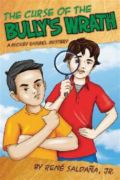
In the fifth novel of the Mickey Rangel Mystery series, author and educator René Saldaña, Jr. crafts another entertaining book for intermediate readers about a subject every school kid has experienced: mean classmates who knock others down to feel better about themselves.

Stella Díaz Has Something to Say introduces an infectiously charming new character with relatable writing and adorable black-and-white art throughout. Simple Spanish vocabulary is also integrated within the text, providing a bilingual element.
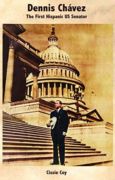
Dennis Cháves was born in the small farming community of Los Chávez in 1888 in what was then the Territory of New Mexico. His childhood home had dirt floors and no indoor plumbing. As a boy, he tended his father’s crops and sheep. He spoke only Spanish and never went to high school or college.
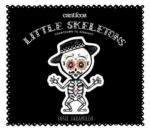
Follow the little skeletons as they go about their surprising and intriguing day while counting down from 1 PM to midnight.